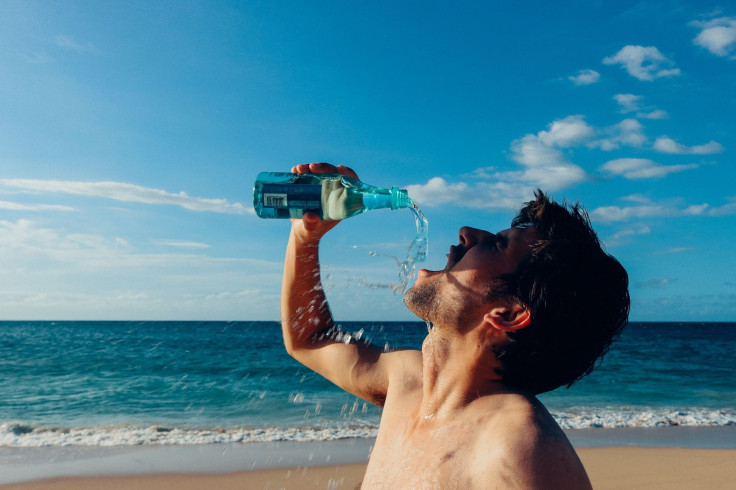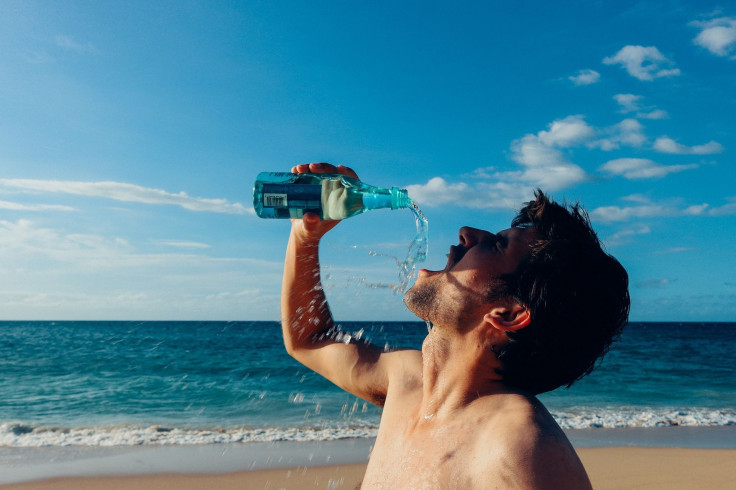Increasing Water Intake May Be Key To Addressing Obesity; How To Lose Weight Through Hydration

Across the country, nearly 80 million American adults are obese, and the numbers are only growing. The obesity epidemic led a team of medical researchers from the University of Michigan’s Medical School to investigate how hydration plays a part in unhealthy weight gain. Their findings, published in the Annals of Family Medicine, suggest that drinking more water may be a powerful tool in the battle against obesity.
The study’s lead author Dr. Tammy Chang, a family medicine professor at the University of Michigan’s Medical School, explained in a statement that the link between hydration and weight has been overlooked. "Staying hydrated is good for you no matter what and our study suggests it may also be linked to maintaining a healthy weight."
For the study, Chang and her team examined data from 9,528 adults between the ages of 18 and 64 who took part in the Centers for Disease Control and Prevention’s National Health and Nutrition Examination Survey. Using the participants’ detailed responses pertaining to their daily food and water intake, researchers found a clear pattern. Approximately one-third of the adults weren’t hydrated enough, and researchers believe those who are overweight or obese are missing out on the benefits the most.

"Hydration may deserve more attention when thinking about addressing obesity on a population level,” Chang said. "We often hear recommendations that drinking water is a way to avoid overeating because you may be thirsty rather than hungry."
Change explained that even though feeling thirsty is the best sign to find out if your body needs more water, people may confuse the feeling of being run down or sleepy with hunger. So instead of reaching for a glass of water, they turn to a snack from their drawer at work or a second helping at the dinner table. By satiating your thirst with a bottle of water and waiting 20 to 30 minutes before eating, you’ll be less inclined to overindulge by accident.
Most people use natural thirst as their drink guide, but the general guidelines recommend women consume 2.7 liters (91 ounces) of water a day, while men should consume 3.7 liters (125 ounces). According to the Food and Nutrition Board, roughly 80 percent of people get their water intake from drinking liquids, while the other 20 percent of their water intake comes from foods.
Chang added: "Eating fruits and vegetables with high water content is good for you not just because of the nutrients they deliver to your body, but also because they can improve your hydration."
In order to make sure the foods you eat provide you with enough water, choose your fruits and vegetables wisely. Cucumber, celery, radishes, tomatoes, cauliflower, star fruit, strawberries, and watermelon all constitute at least 90 percent water weight. Also, remember to avoid or limit drinks that dehydrate the body like coffee, soft drinks, and alcohol. If you still crave a sweet drink, infuse your water with a variety of fruits throughout the day.
Source: Chang T, Davis MM, Ravi N, Plegue MA, and Sonneville KR. Inadequate Hydration, BMI, and Obesity Among US Adults: NHANES 2009-2012. Annals of Family Medicine. 2016.



























